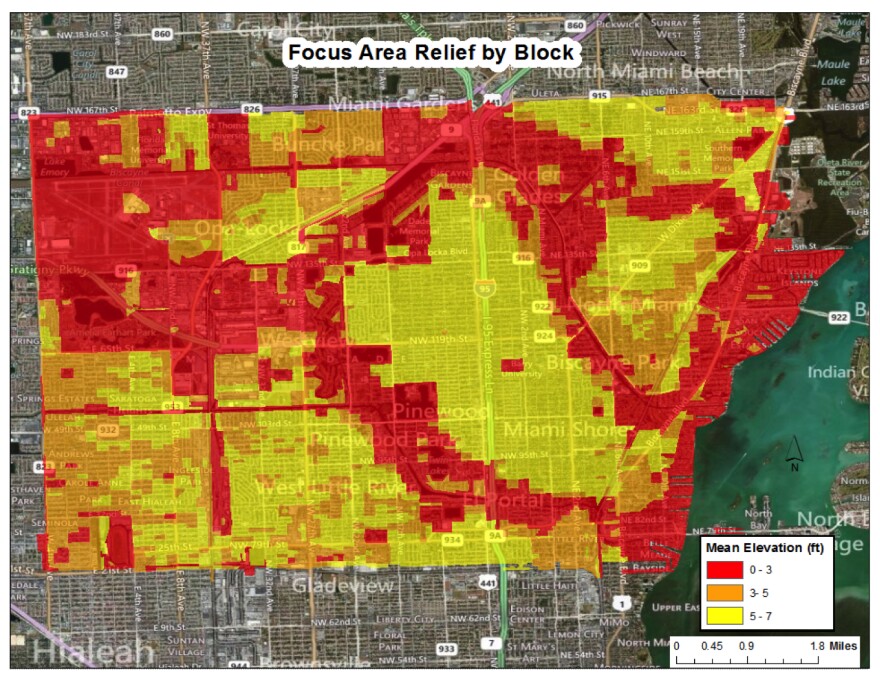Keren Bolter is a doctoral student of geosciences at Florida Atlantic University researching what areas in South Florida are particularly threatened by rising seas. She says all methods of analysis for the risks of sea-level rise only focus on financial vulnerability -- ranking Fort Lauderdale Beach and Miami Beach as high-risk -- but to her, that's not the whole story.
People who own properties in those financially vulnerable areas are generally higher on the income spectrum, meaning they could take precautions and pay for repairs if necessary. But Bolter adds socio-economic and health risks to her vulnerability equation.
“[Other at-risk areas], they are low-lying and they are low-income so these people don't have the money even if they wanted to [prepare for sea-level rise],” says Bolter.
On a recent walk through Miami's Little River neighborhood, around Northwest 78th Street and Seventh Avenue, Bolter pointed out that area is one of the most vulnerable.
“These are the areas where we need to be thinking about," she says. "These people are the ones who need [attention] the most."
Walking along, she stopped to talk with two men standing outside their house, David Gerrard and Terrence Hall.

“How high do you think we are in feet above sea level?” she asked in professor mode.
One guessed 10 feet, the other 20. The actual elevation there is about 5 feet. But David Gerrard says sea-level rise is not a priority for him or other residents of his neighborhood.
“They’re not worried about that right now,” he says. “They're worried about money, where the next dollar going to come from. We ain't in New Orleans so they don't care.”
Bolter says this type of response is typical -- people in low-income neighborhoods have more pressing issues to worry about. Sea-level rise is too far down the line to be perceived as a risk, perhaps making that area and others like it even more vulnerable than places closer to the ocean.
But these neighborhoods can’t afford to retrofit or make long-term plans on their own. It takes government help to spearhead those big projects. But government for this unincorporated neighborhood means coordinating two different county commissioners to get on board for anything the residents might need.

Mack Samuel is on the North Central Municipal Advisory Committee, which is looking into making Gerrard's area its own city. If it were up to Samuel, the new city would be called "Central Miami."
“One of the drivers for me is that the community does not gain access to information because the taxing authority is Miami-Dade County,” Samuel says. “Government closer to the people is what we’re striving for, and all of the benefits that goes with that. You’re controlling taxes, controlling land, you’re planning for what needs to happen within the community, by the people who live in the community.”
Planning for things like sea-level rise.
--------------------------------------------------------
Keren Bolter is participating in a panel discussion about sea level Friday April, 4th at Florida Atlantic University's MetroLAB from 11:30am-1pm.






